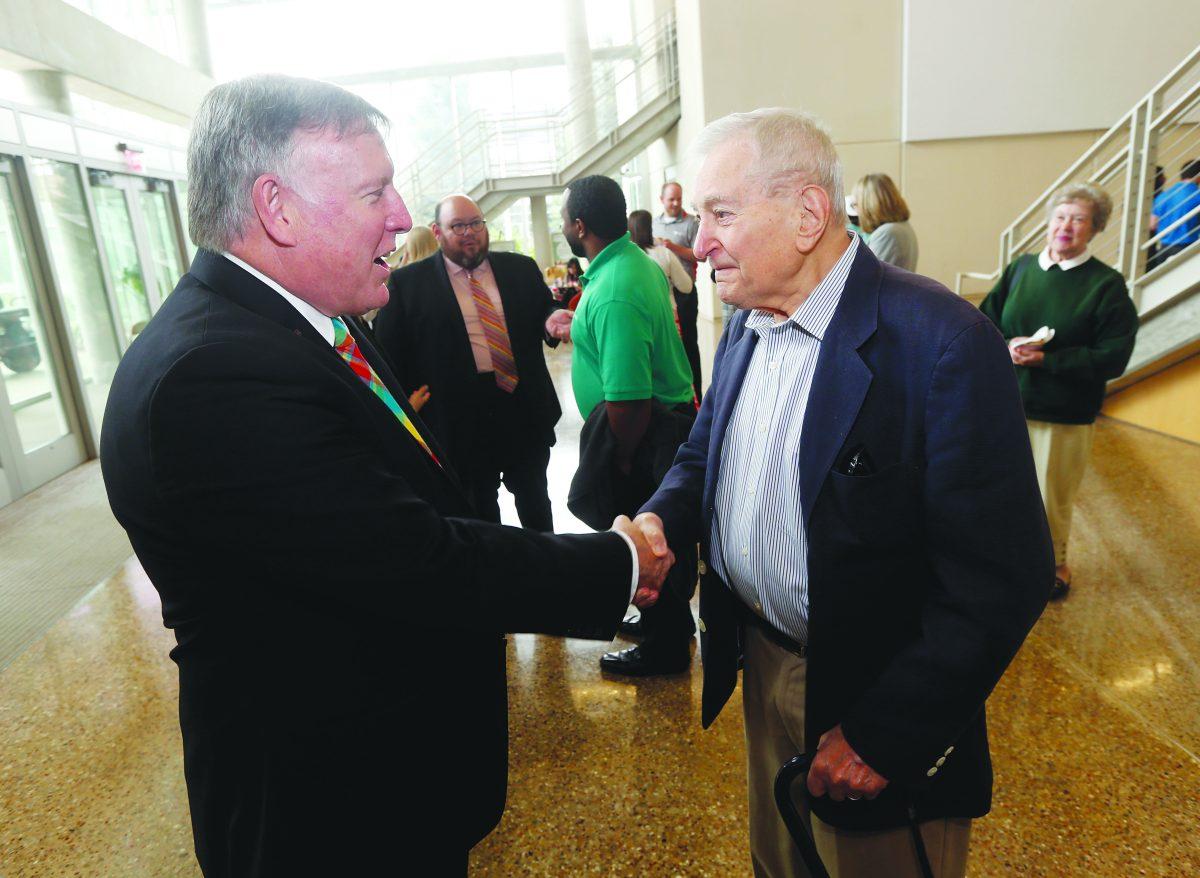Holocaust survivor, retired physics professor who taught at university for 66 years passes away at age 94
Wolfgang Rindler, a professor emeritus of physics and one of the founding faculty members at UTD, passed away earlier this month on Feb. 8. He was 94.
Rindler was born in Vienna, Austria in 1924 and fled to England from the Nazis in 1938 because of his Jewish ancestry. He received his bachelor’s and master’s degrees in mathematics at the University of Liverpool before receiving his doctorate in mathematics with a focus on relativity from Imperial College London. He began teaching as a graduate student at the University of Liverpool in 1947 and continued teaching until his retirement. He taught at Cornell University during 1956 before coming to Dallas in 1963.
Rindler gained recognition for coining the term “event horizon,” a key idea of general relativity that space and time are not separate concepts but are unified in four-dimensional space-time.
Physics professor Mustapha Ishak-Boushaki worked with Rindler as a part of UTD’s Cosmology, Relativity and Astrophysics research group.
“He was a very kind man and a very good friend,” Ishak-Boushaki said. “Of course, he was older than anyone I was working with, but he respects the ideas of others and keeps his own ideas as well.”
Both professors collaborated on four papers from 2007 to 2010, which focused on misconceptions regarding papers published in the early 1980s about how the cosmological constant does not affect the deflection of light by a massive object. They discovered the constant does indeed affect the deflection of light.
“He would always find a way to make a nice comment or observation. He would listen very well and encourage other ideas, but again, if he knew he was right on something, he would try to explain it,” Ishak-Boushaki said. “He had a very collegiate way of working and was very humble.”
Michael Kesden, an assistant professor of physics, also collaborated with Rindler on several occasions.
“It’s just amazing, trying to encapsulate his career. He had a passion for a lot of different things, but he was mostly a mathematician and mostly understood the mathematical foundations of relativity,” Kesden said.
“I think he will always be recognized as one of the founders of this university from an academic perspective. He will be seen as an inspiration to current and future students.”
In 1963, UTD was a private research organization known as the Graduate Research Center of the Southwest. One of Rindler’s friends, Ivor Robinson, the head of the Division of Mathematics and Mathematical Physics and another founding member of the research center, offered Rindler a position teaching mathematics, relativity theory and cosmology. In 1969, when the center became what is now UTD, he published his first undergraduate textbook, “Essential Relativity: Special, General, and Cosmological.” In 1984, he co-wrote and published the first volume of “Spinors and Spacetime,” and in 2001, “Relativity: Special, General, and Cosmological.” Other than textbooks, Rindler also published multiple papers in The American Journal of Physics.
Rinder taught UTD students for 66 years before retiring in 2013. He is survived by his wife, Linda, his daughter, Cynthia and his two sons, Eric and Mitchell.

















